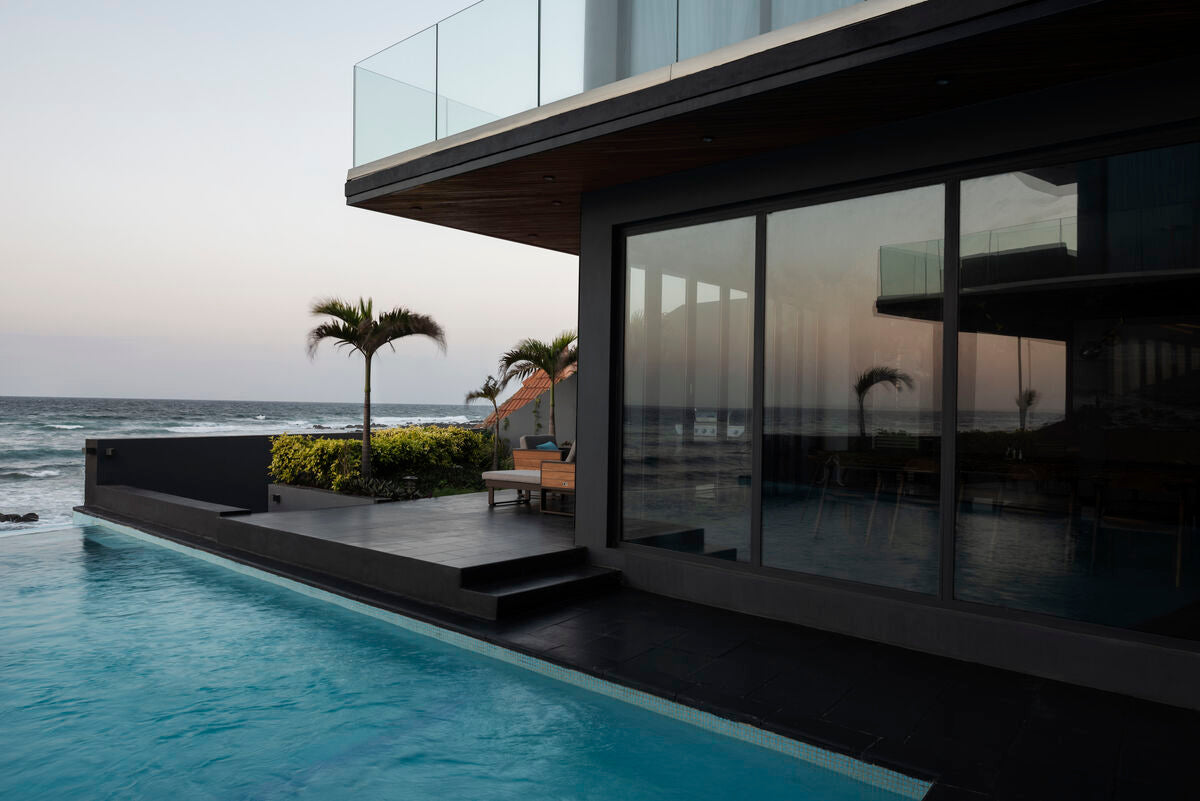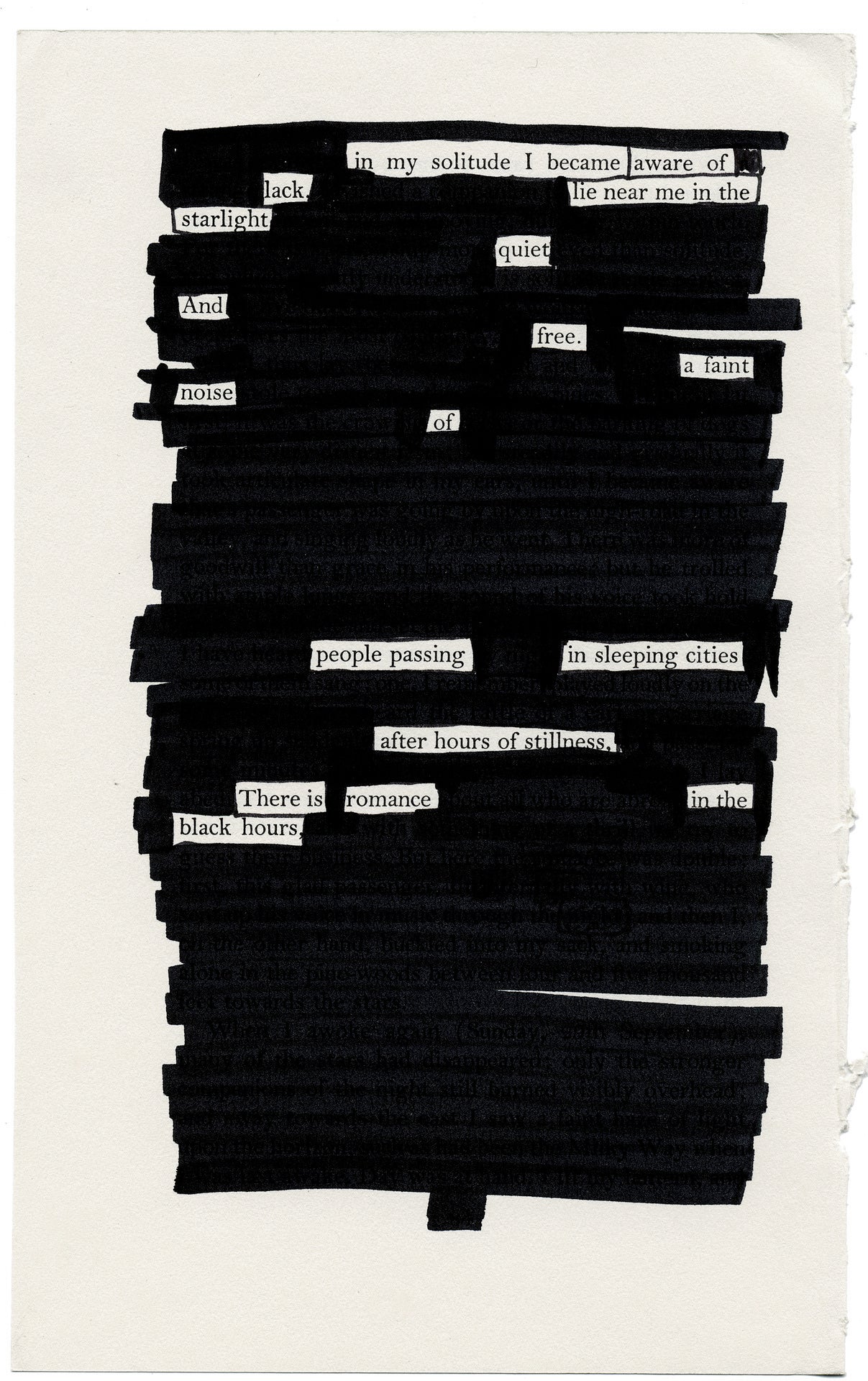Black Rock Senegal was established in 2019 by American contemporary artist Kehinde Wiley, known for his portrait of former US president Barack Obama. It came from a need to “have an uncontested relationship with Africa, the filling in of a large void”, a sentiment shared with many African Americans. And so this art collective was created as a multi-disciplinary artist-in-residence program. It brings together visual artists, painters, sculptors, filmmakers and writers from around the world to live and work in Dakar, Senegal for a few months.
Whiley collaborated with Senegalese architect Abib Djenne, his daughter Fatiya and painter and textile designer Aissa Dione. Together, they designed a home and studio for Whiley and similar spaces for three other artists. The setup will enable Black Rock Senegal to support up and coming artists as well as “support new artistic creation through collaborative exchange and to incite change in the global discourse about Africa”.
Whiley first visited Dakar when he was 19 years old. He fell in love with Senegal’s culture, art, food, language and landscape. It was a love that years later drew him back to explore more of Africa and also to establish this residency on the westernmost point of the continent.
Djenne drew his architectural inspiration from nature. In this part of Senegal, black rocks litter the unspoilt coastline and it made sense to keep the architecture minimalistic and tasteful to compliment the beauty of the landscape. A sleek, 20-foot tall wooden door crafted from Cameroonian Amazakoue wood faces away from the gate of departure from where the enslaved of Gorée were once shipped across the Atlantic to the Americas.
The luxurious seaside studio apartments are situated within a tropical garden, and come with a sauna and infinity pool. Chefs working in the kitchen are given the opportunity to experiment, blurring the lines between food and art. It’s hoped that such an idyllic setting will inspire the artists to produce incredible work.
Often reserved for the privileged few, some perceive artist residencies to be regulated by white male, cultural gatekeepers. Black Rock is one of the emerging residencies organised by Black people who work hard to make it accessible for creatives. Staff members facilitate studio visits while local curators accompany artists to Gorée and to the Musée des Civilisations Noires which opened in December 2018.
Black Rock has hosted many talented international artists since its formation two years ago. These include Accra-based artist Zohra Opoku; California-based visual artist Grace Lynne Haynes; filmmaker, dance therapist, scholar and award-winning author Ytasha L. Womack; New York visual artist Tajh Rust; Nigerian photojournalist and artist Yagazie Emezi; and Swiss photographer and director Laurence Bonvin. North Carolinan multimedia artist Stephanie J. Woods; Austrian painter Katherina Olschbaur; Canadian sculptor and installation artist Esmaa Mohamoud; Angolan contemporary artist Cristiano Mangovo; and artist and visual researcher Mbali Dhlamini from South Africa have also benefited from the program.
The global pandemic has disrupted the usual flow of things, but Black Rock remains open albeit with a reduced operation. This year’s residents have been selected by supermodel and activist Naomi Campbell; architect Sir David Adjaye OBE; Anne Pasternak, Director of The Brooklyn Museum; artist and 2019’s Black Rock Senegal resident Yagazie Emezi; contemporary art curator Christine Y. Kim of the Los Angeles County Museum of Art; and Ghanaian painter and visual artist Amoako Boafo.
Securing a Black Rock residency can be transformational. Ghanaian-German artist Zohra Opuku has achieved international acclaim as an artist. Part of Whiley’s inaugural Black Rock Senegal residency, she is known for creating works that analyse the politics of personhood and societal identity through cultural, socio-economical and historical impact, spotlighting the contemporary landscape of Ghana. With a background in fashion and photography, Opoku graduated with an MA in Fashion from the Hamburg University of Applied Sciences.
Opoku works across numerous mediums: photography, installation, video, performance and sculpture. She uses aesthetic textile practices and traditional dress codes that not only influenced Ghana’s identity but also had an effect across the rest of West Africa. Her photographs are presented through alternative photo processing techniques and screen-printing on a variety of natural fabrics, often adding family heirlooms and self portraits to the artworks.
The artist arrived at Black Rock in March 2020 just after undergoing radiation therapy for breast cancer. Confronted with her own existence – thinking about life, death and the afterlife, as well as coping with the trauma brought about from the events leading to the Black Lives Matter protests of summer 2020 and the isolating effects of Covid – Opuku created a body of work (The Myths of Eternal Life), that reflected her healing journey, a deep dive into her emotions.
Angolan, Portugal-based artist Cristiano Mangovo’s is one of fifteen artists attending the residency in 2021. His striking paintings marry surrealism and impressionist art technique, and are given a contemporary edge with their cartoon-like style. He graduated with a degree in painting from the Faculty of Fine Arts in the Académie des Beaux-Arts in Kinshasa, Democratic Republic of the Congo. With an impressive fifty exhibitions and performances under his belt, Mangovo has achieved international recognition for his work, with exhibitions in France, South Africa, the United States, Democratic Republic of the Congo, Angola, Italy, and Portugal.
Mangovo experiments with new painting techniques using diverse materials, often adding symbolism to his unique works. His paintings, installations, performances and sculptures reflect daily urban life and issues that affect society including our neoliberal, consumerist and capitalist culture, women’s rights and the environment. Creating work that focuses on the complexities of contemporary African frameworks, through his multidisciplinary projects, Mangovo expresses his ideals for change from oppressive structures, urging for an equal society that is fair to all.



